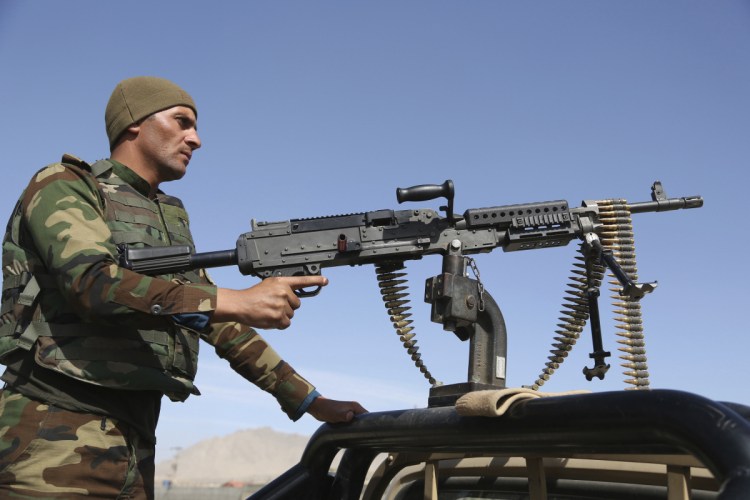U.S. military officials grappled Friday with President Trump’s order to pull nearly half of all U.S. troops from Afghanistan, a move likely to focus the war squarely on one of the few military efforts the president says he cares about: counterterrorism.
The order to draw up withdrawal plans, issued during a White House meeting this week, would reduce the military presence from more than 14,000 troops to about 7,000, drastically scaling back Pentagon efforts to assist and support Afghan forces.
Afghan forces have suffered hundreds of fatalities per month this year, as a resurgent Taliban puts pressure on the Afghan government despite a marginally expanded Pentagon mission there 16 months ago.
U.S. military officials in Afghanistan and at the Pentagon have declined to comment. Some U.S. officials close to the president, speaking on the condition of anonymity because of the sensitivity of the issue, said they are trying to talk the president out of making a change.
Trump has long expressed frustration with the 17-year war and nation-building in general. In announcing his Afghan plan last year, he criticized efforts by the Obama administration as not muscular enough, but also said he was going against his own instincts to pull out of Afghanistan entirely.
Defense Secretary Jim Mattis, who resigned Thursday, and other senior advisers who lobbied for staying in Afghanistan are now on their way out. Other influential voices in foreign policy weighed in wearily Friday about Afghanistan, but focused mainly on the consequences of withdrawing all U.S. troops from Afghanistan, a move that would hamstring the Pentagon’s ability to carry out strikes against the Islamic State, al-Qaida and other terrorist groups.
“An Afghan withdrawal would be even more calamitous than pulling out of Syria,” said James Stavridis, a retired Navy admiral, referring to Trump’s announcement this week that he would withdraw all American forces there. “It would lead to the resurgence of the Taliban, who would welcome al-Qaida back with open arms.”
Stavridis made a case for keeping the existing strategy, adopted by Trump in August 2017, and said that not doing so undercuts U.S. efforts to strike a peace deal with the Taliban.
Copy the Story LinkSend questions/comments to the editors.



Success. Please wait for the page to reload. If the page does not reload within 5 seconds, please refresh the page.
Enter your email and password to access comments.
Hi, to comment on stories you must . This profile is in addition to your subscription and website login.
Already have a commenting profile? .
Invalid username/password.
Please check your email to confirm and complete your registration.
Only subscribers are eligible to post comments. Please subscribe or login first for digital access. Here’s why.
Use the form below to reset your password. When you've submitted your account email, we will send an email with a reset code.